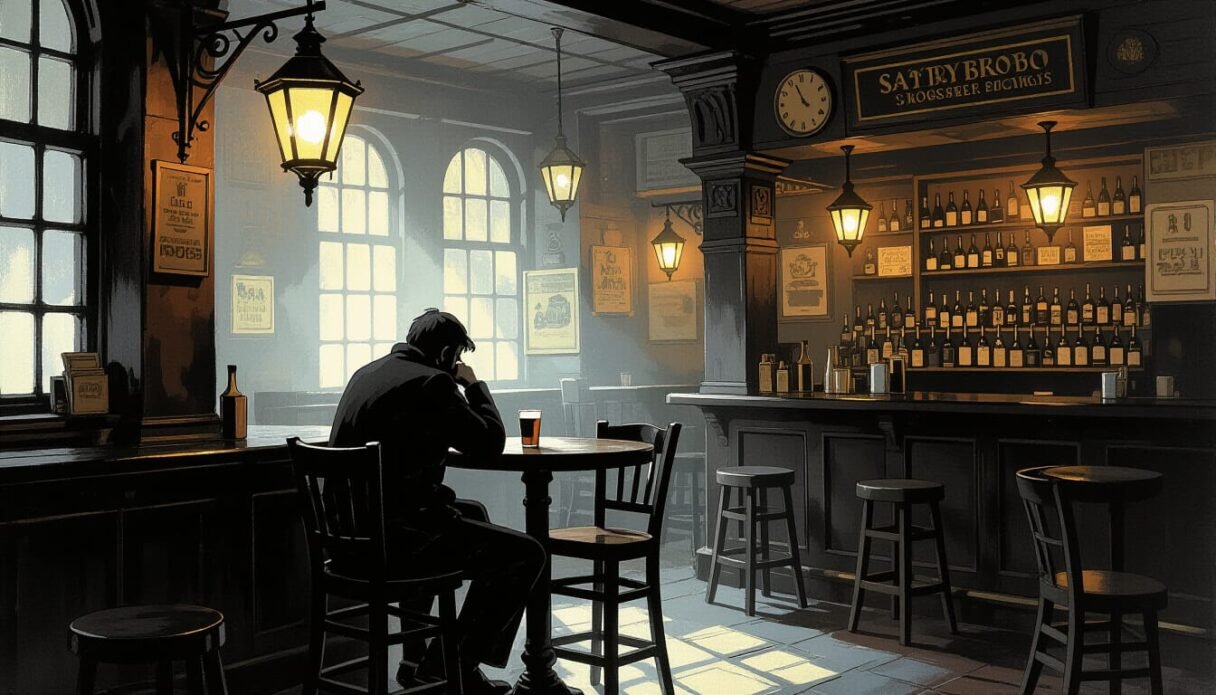How Economic Pressures are Dimming Britain’s Pubs
There’s a quiet tragedy unfolding on high streets and in villages across Britain. It’s not a sudden, dramatic collapse, but a slow, insidious erosion – the degradation of our beloved community pubs. These aren’t just places to grab a pint; they are the beating hearts of our neighbourhoods, the unofficial community centres where friendships are forged, sorrows shared, and local life truly unfurls. Yet, increasingly, these vital outlets are struggling to stay afloat, buffeted by an unforgiving economic climate.
The recent struggles of craft beer giant BrewDog, while a high-profile case, offer a stark illustration of the wider pressures at play. The news of BrewDog’s decision to close 10 of its UK bars, including its flagship in Aberdeen, sends a ripple of concern through the industry. While BrewDog’s story is complex, encompassing past controversies and evolving brand identity, their cited reasons for closure – a “challenging hospitality market, rising costs, and economic pressures” – echo the laments of countless smaller, independent landlords who are fighting for survival.
Imagine the traditional local, a place where generations have gathered. Now, picture it wrestling with soaring energy bills, the escalating cost of ingredients, and the relentless squeeze of consumer spending. Pubs, inherently reliant on discretionary income, are often among the first casualties when households tighten their belts. The rising cost of living means fewer spontaneous visits, fewer rounds bought, and fewer meals enjoyed within their cosy walls.
The impact extends far beyond the bottom line of individual businesses. When a pub closes, it’s not merely a commercial failure; it’s a social amputation. These establishments have historically served as crucial community hubs. They are where local sports teams celebrate victories and drown their sorrows, where charity events are hosted, where lonely individuals can find companionship, and where community notices are exchanged. They are a vital third space, distinct from work and home, offering a crucial sense of belonging and informal support.
For many, the local pub is a cornerstone of their identity and connection to their community. It’s where you know the landlord by name, where you have “your” seat, and where familiar faces offer a comforting presence. The disappearance of these places leaves a void that is difficult, if not impossible, to fill. Online interactions, while convenient, cannot replicate the spontaneous warmth, the shared laughter, or the empathetic silence found in a bustling pub.
The degradation of these community outlets is a loss for everyone. It contributes to a creeping isolation, particularly for older generations or those without extensive social networks. It weakens the fabric of local life, making communities feel less vibrant, less interconnected, and less resilient.
The BrewDog case, while focused on a large, modern brand, serves as a powerful reminder that even the most well-known players are not immune to the harsh realities of the current economic landscape. If such a prominent company is feeling the pinch to the point of significant closures, what does that mean for the thousands of smaller, often family-run, establishments that form the backbone of Britain’s pub culture?
The fading glow of the local pub is more than just a commercial trend; it’s a societal warning. It highlights the urgent need to recognise and support these irreplaceable community assets. Without them, we risk losing not just places to drink, but fundamental pillars of our shared social lives. The fight to keep our pubs alive is, in essence, a fight to preserve the very soul of our communities.
Until Next Time

Discover more from Dominus Owen Markham
Subscribe to get the latest posts sent to your email.

